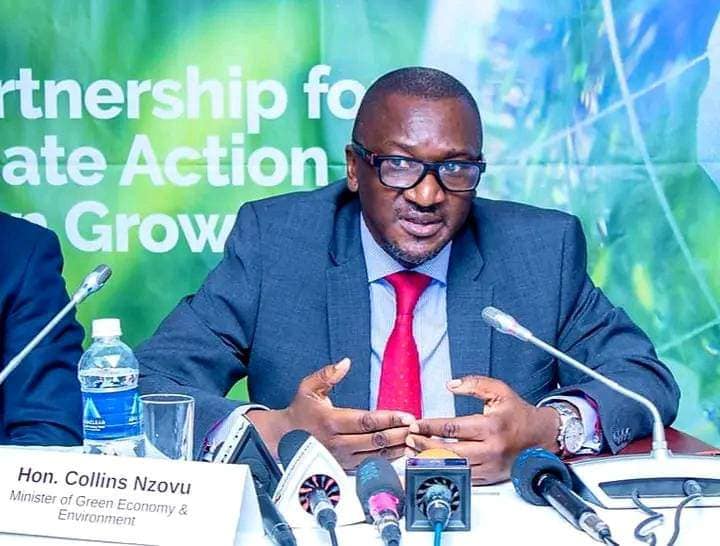MARGARET CHISANGA
Lusaka
GOVERNMENT has increased investment to the development of rainwater harvesting infrastructure through the construction and rehabilitation of 20 multipurpose dams as well as the maintenance of 770 dams in the past two years.
Minister of Water Development and Sanitation Collins Nzovu said yesterday that Government has further begun the process of constructing 40 small to medium-sized multipurpose dams and three large dams as well as the rehabilitation of 16 small to medium-sized dams country-wide.
He was speaking during the launch of the National Rainwater Harvesting Strategy, with its implementation plan in Lusaka, yesterday.
This is expected to enhance overall water security that will benefit various water users and build resilience against climate shocks in Zambia as a whole.
“Specifically, the strategy will establish water harvesting mechanisms to enable irrigation development that will stimulate agricultural production,” he said.
“This initiative is not only a solution to our current challenges but a long-term commitment to securing Zambia’s water future, enhancing resilience, and driving sustainable development.”
The ministry initiated the development of strategy following the declaration of the drought during the 2023/2024 rainy season as a national disaster and emergency by President Hakainde Hichilema in February.
“The effects of climate change have intensified the need for comprehensive water solutions, and rainwater harvesting is a proactive measure to mitigate these challenges,” he said.
The strategy is structured around three main areas – developing rainwater harvesting infrastructure, enhancing ecosystems and water-dependent services and strengthening policy and institutional frameworks.
The strategy was launched with support from the European Union’s Green Nexus Programme, which is part of the European Union’s Global Gateway Strategy that aims to contribute towards a sustainable and resilient future for Zambia.
“Rainwater harvesting presents a unique opportunity towards building climate resilience of ecosystems, food security and sustainable livelihoods for people in Zambia,” Claudio Bacigalupi, head of cooperation at the European Union Delegation to Zambia and COMESA, said.
“As team Europe we come together to promote and facilitate partnerships and investments in green recovery and sustainable growth through sustainable land use and natural resource management across various sectors in line with Zambia’s development agenda.”
As part of the Green Nexus Programme, the bloc, the German and Swedish governments co-funded the Integrated Water Catchment Management and Landscape Protection in Zambia (AWARE 2.0) project.
The project is contributing to the implementation of the strategy through the scaling up of low-cost, robust, and replicable nature-based solutions to improve water resource management.


